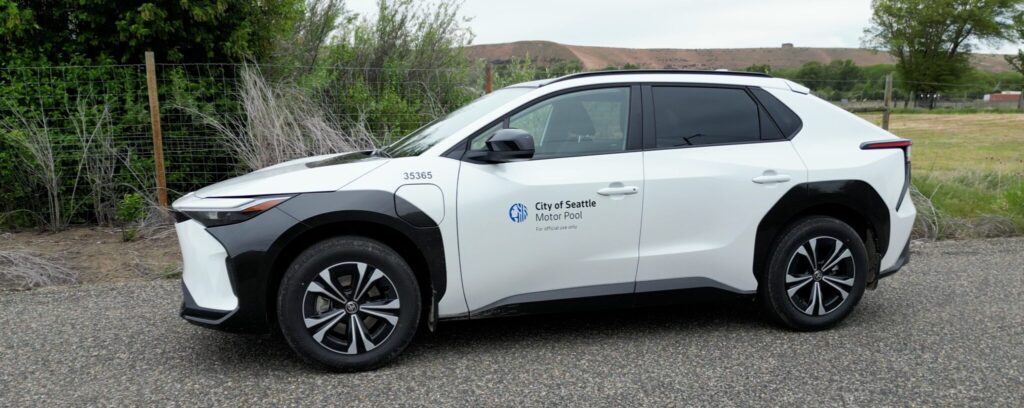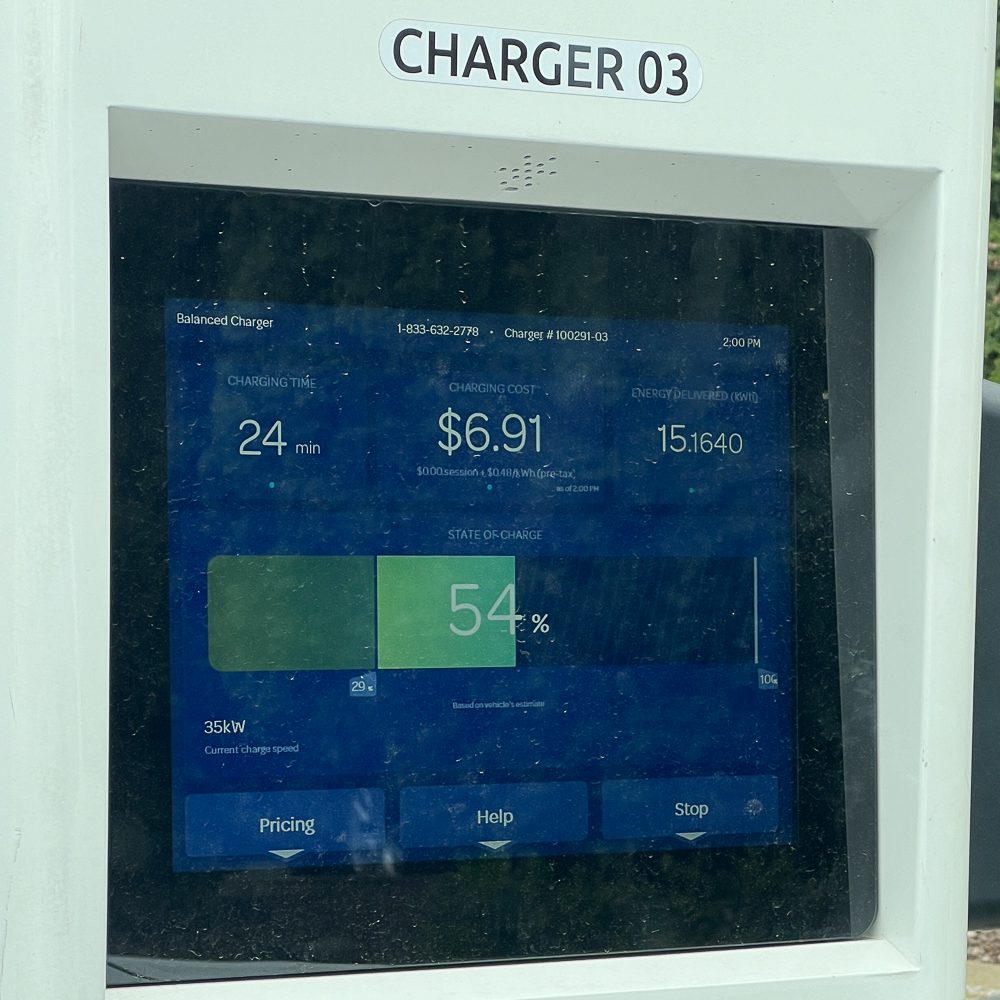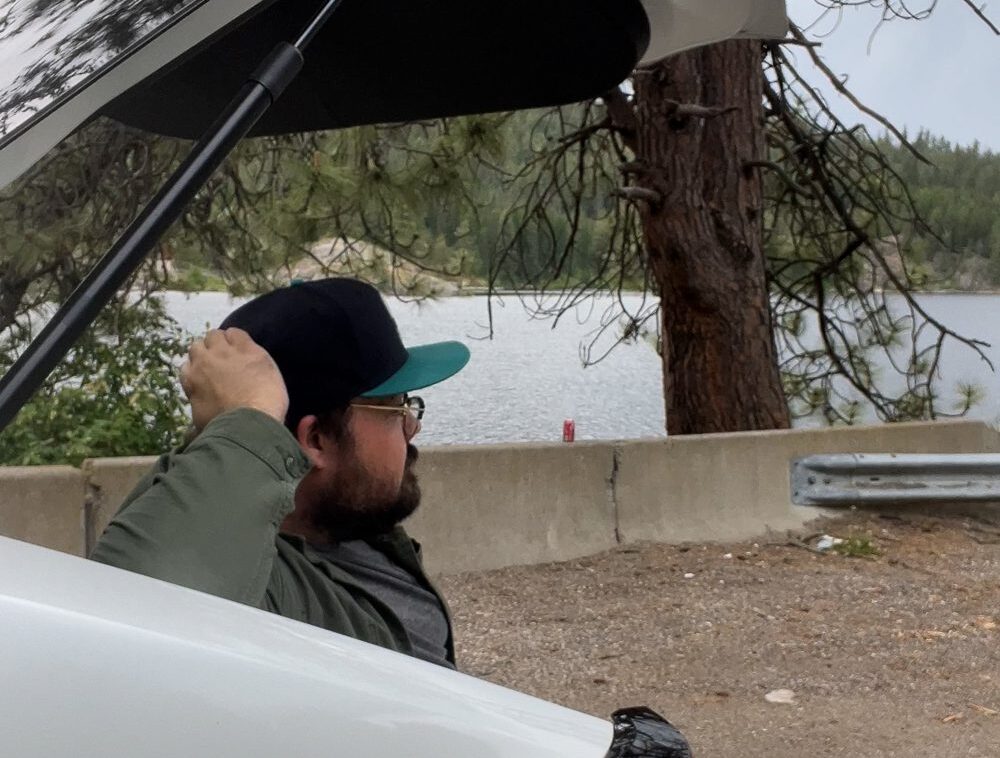
The light turns green as I idle – well, not exactly idle, but sit – in a City-issued, all-electric Toyota bZ4x on the corner of 6th and Cherry in downtown Seattle. I press on the accelerator and the car shoots forward with a surprising amount of torque.
It’s my first time behind the wheel of an electric vehicle. But Seattle City Light is about to celebrate the opening of our Native Salmonid Conservation Facility in Usk, WA, an hour north of Spokane. For those with range anxiety, it’s the perfect opportunity to showcase that an all-electric vehicle can take you pretty much anywhere in Washington.
So, with a backseat full of canopies, AV equipment, and bags of apples and silverware, I merge onto I-90 to find out for sure if I can make the drive.
Planning ahead was the key to success.
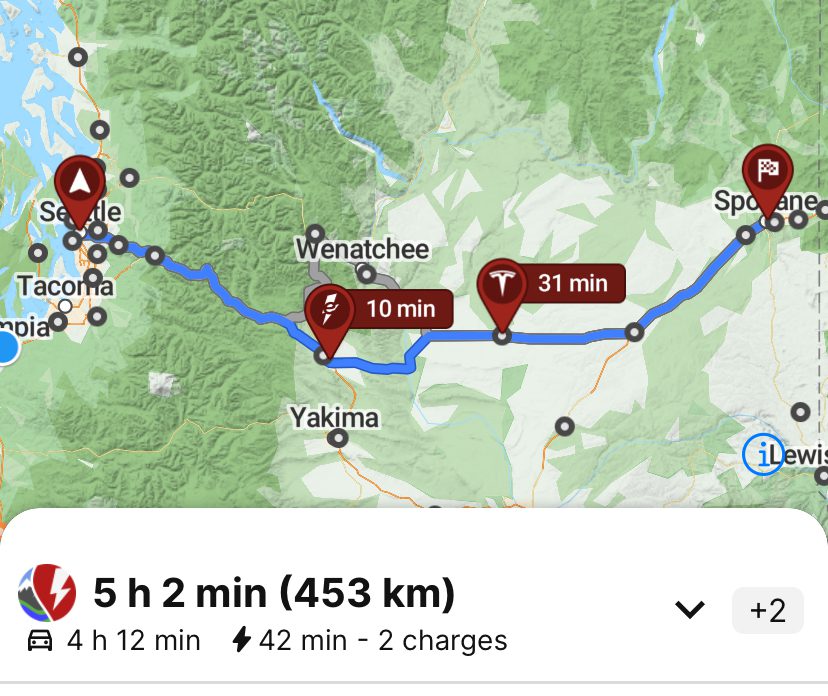
I’ll admit, I had a bit of range anxiety of my own. Using an app called ABRP and info from the Toyota website, I mapped my trip and made sure I wouldn’t have to be rescued along the interstate.
In addition to route, the app also recommended charging stops that minimized stopping time based on the car. This is particularly important as most EVs will protect their battery by slowing down their charge speed once they get to 80%.
The app recommended I stop twice: once in Ellensburg (10 minutes, charging 22% to 50%) and again in Moses Lake (a longer, 49 minute stop, to go from 10% – 92%).
The app also provided options along the way in case I needed to change my route or if the battery life worked less than optimally. When I was going over Snoqualmie Pass, I did notice that my battery mileage was dropping faster than I expected. I was surprised to see that reflected in the estimates, as I pulled into Ellensburg with 29% battery, a bit higher than what it had said.
Charging didn’t take as long as I anticipated.
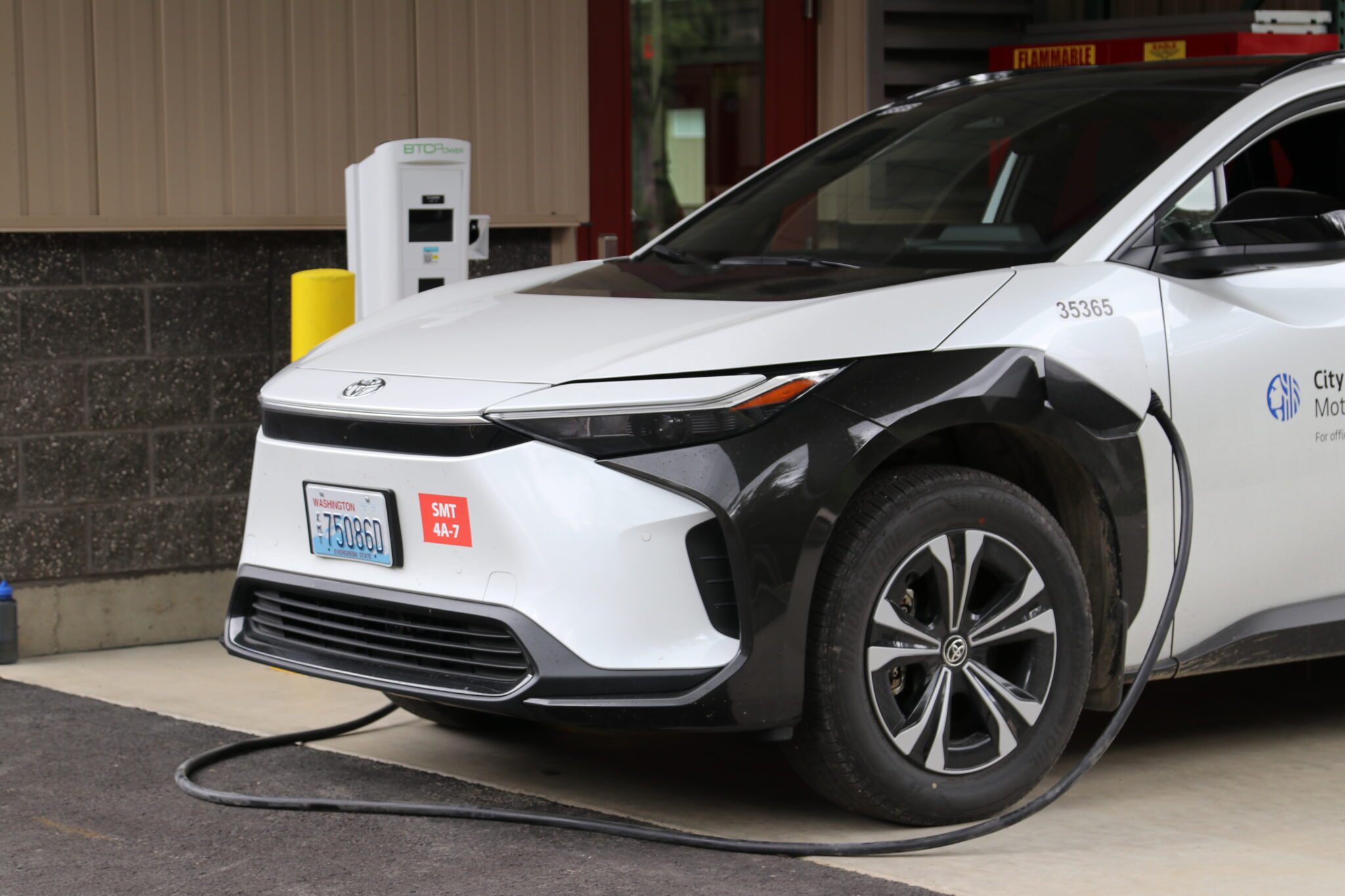
Though not as quick as pumping a tank of gas, technology has been catching up. Now, even affordable EV models can get hundreds of miles in 10-15 minutes of charging at a DC Fast Charger. As I charged in Ellensburg, I waited a little longer than planned, charged to 73%, and was there for about 35 minutes.
After driving some more, I spent about 15 minutes at a Tesla Supercharger in Moses Lake. These chargers were equipped with “Magic Docks,” which allow users to use a CCS adapter, the current charging standard for most non-Tesla vehicles.
The Toyota bZ4x is EPA-rated for 235 miles on a single charge, so it seemed like a bit much to stop twice on this trip to Usk. However, my route ensured I had access to high-powered DC Fast Chargers instead of waiting longer at a lower-powered charger.
Charging was cheaper than gas (by a lot).
So how much did it cost? Here’s the math:
- Before leaving: 72 kWh* x $0.1331** = $9.58
- Ellensburg Charge: 27.2 kWh x $0.48 = $13.05
- Moses Lake Charge: 19 kWh x $0.39 = $7.41
- Total Cost Driving from Seattle to Spokane: $30.04
*Toyota-provided battery size for bZ4x
**Average between two City Light block kWh rates ($0.1291 and $0.1372)
In total it cost around $60 to make this trip. Compare this with a RAV4, a similar sized gas-powered vehicle, which clocks in closer to $95 round trip.
I learned a lot during my first trip in an EV and am excited to learn more as I move forward. After all, as AAA says, “The cure for range anxiety is owning an EV.”
